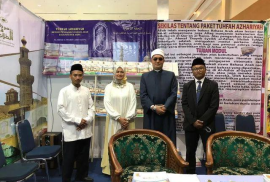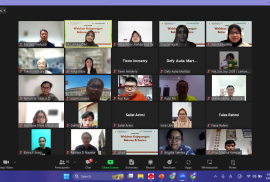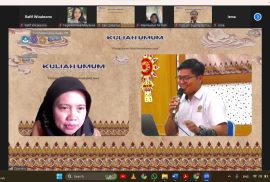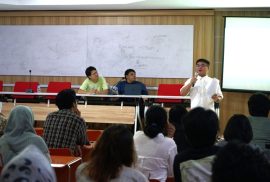Muhammad Khafifudin, who is familiarly called Khafif, is a student from the UGM Master of Middle Eastern Cultural Studies Program who was chosen to be a translator and personal assistant to one of the Professors of Canal Suez University Egypt, Prof. Dr. Hassan Youssef during his visit to Indonesia. The alumni of Al-Azhar University Egypt accompanied the professor to several events at various institutions, namely UIN Abdurrahman Wachid Pekalongan, Gadjah Mada University, Sebelas Maret University and UIN Raden Mas Said Surakarta. In his duties, he translates from Arabic to Indonesian, both oral and written.
Previously, Khafif had been selected as a translator for several other prominent figures from Egypt, namely Prof. Dr. Mohammed Imam Dawood from the Giza Qur’an Institute, Prof. Dr. Nahla Shabry As-Shoidy as Advisor to the Grand Sheikh of Al-Azhar University, and Dr. Nadzir Ayyad, as Secretary General of Majma’ Buhust Lugah al-Arabiyyah. From this experience, this outstanding student successfully translated speeches, material presentations and important documents. During his assignment, he also received positive responses and good appreciation from the figures he accompanied. Therefore, knowledge of spoken and written Arabic plays an important role in establishing communication and cooperation between countries.






